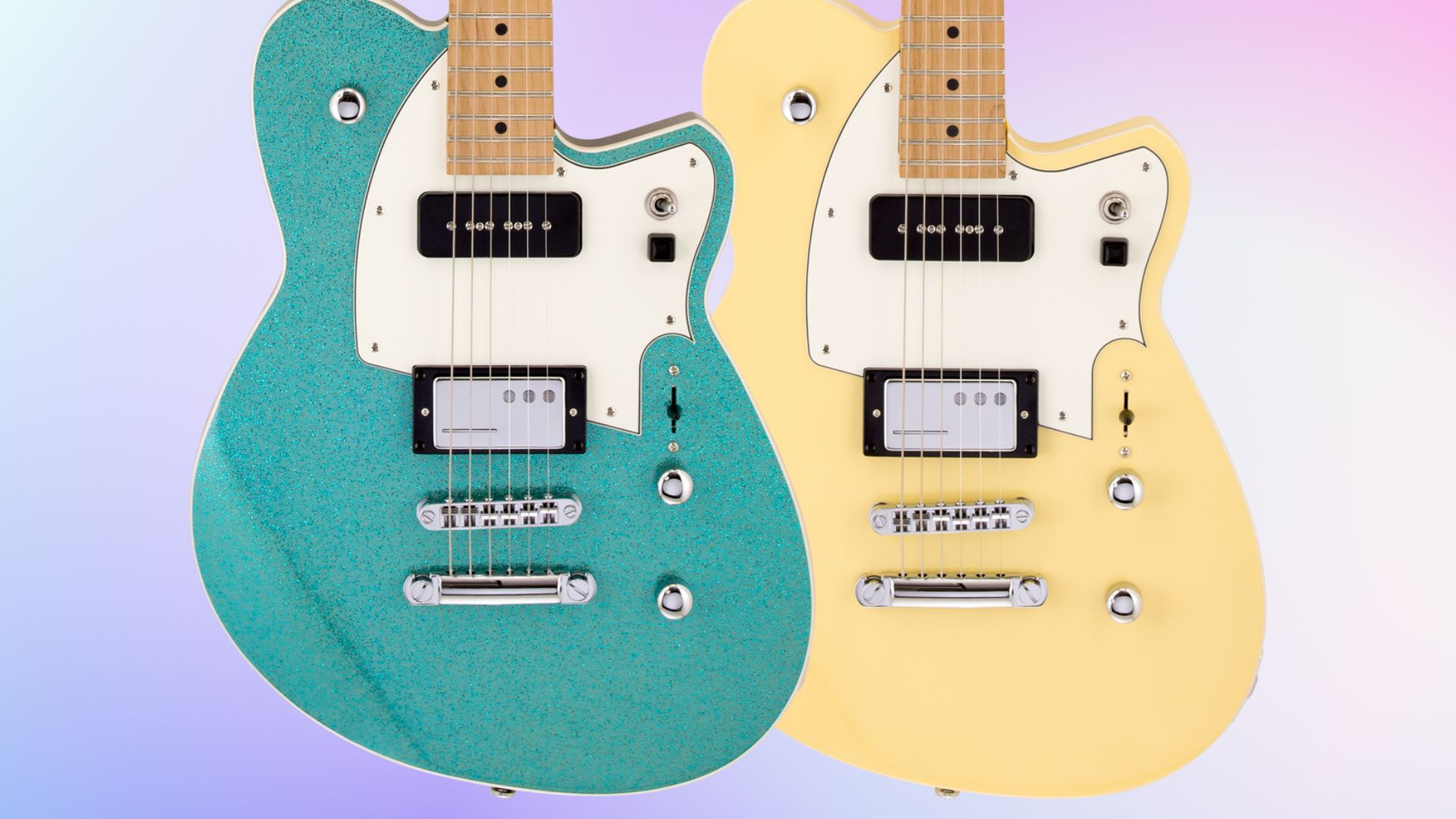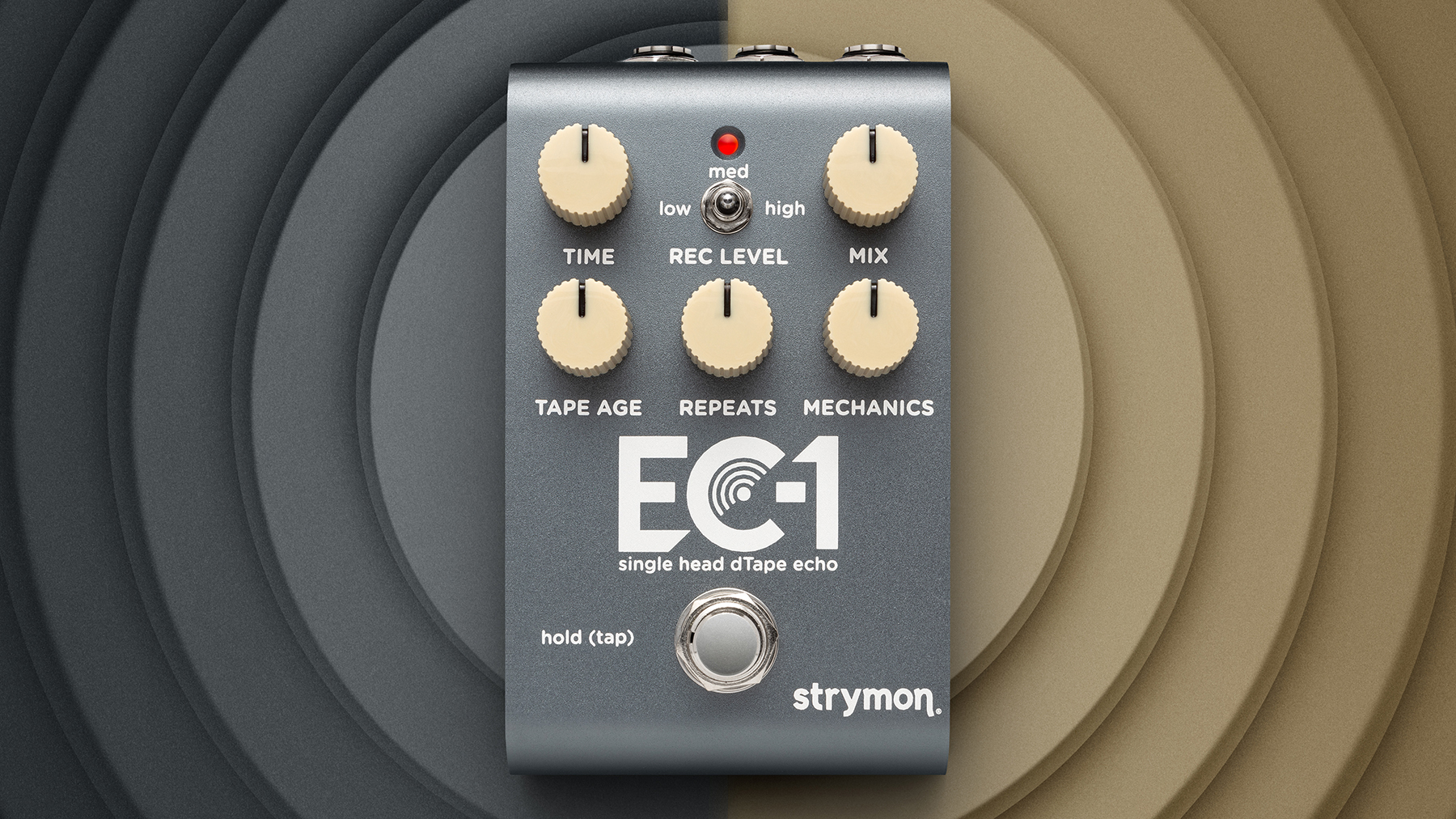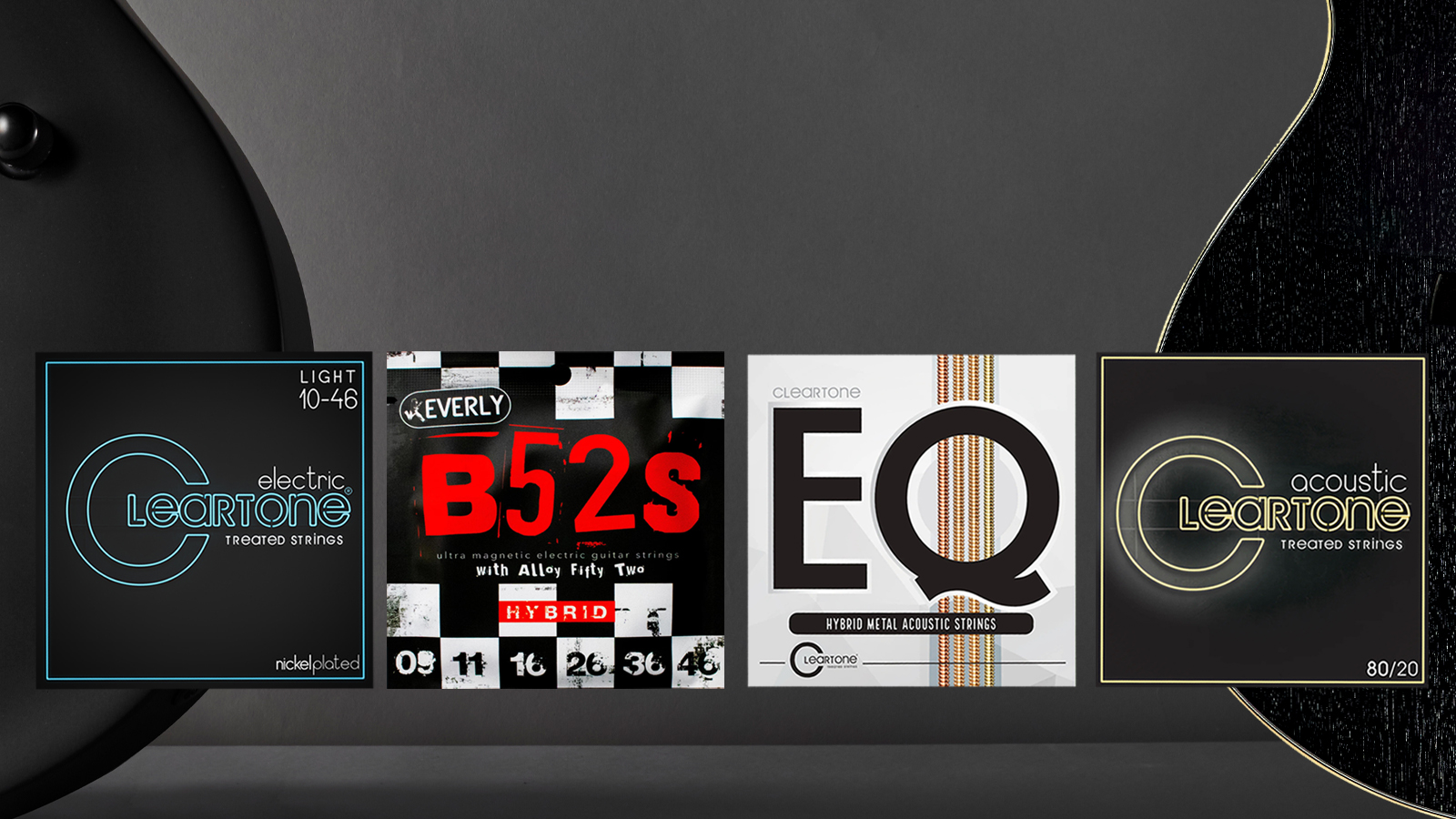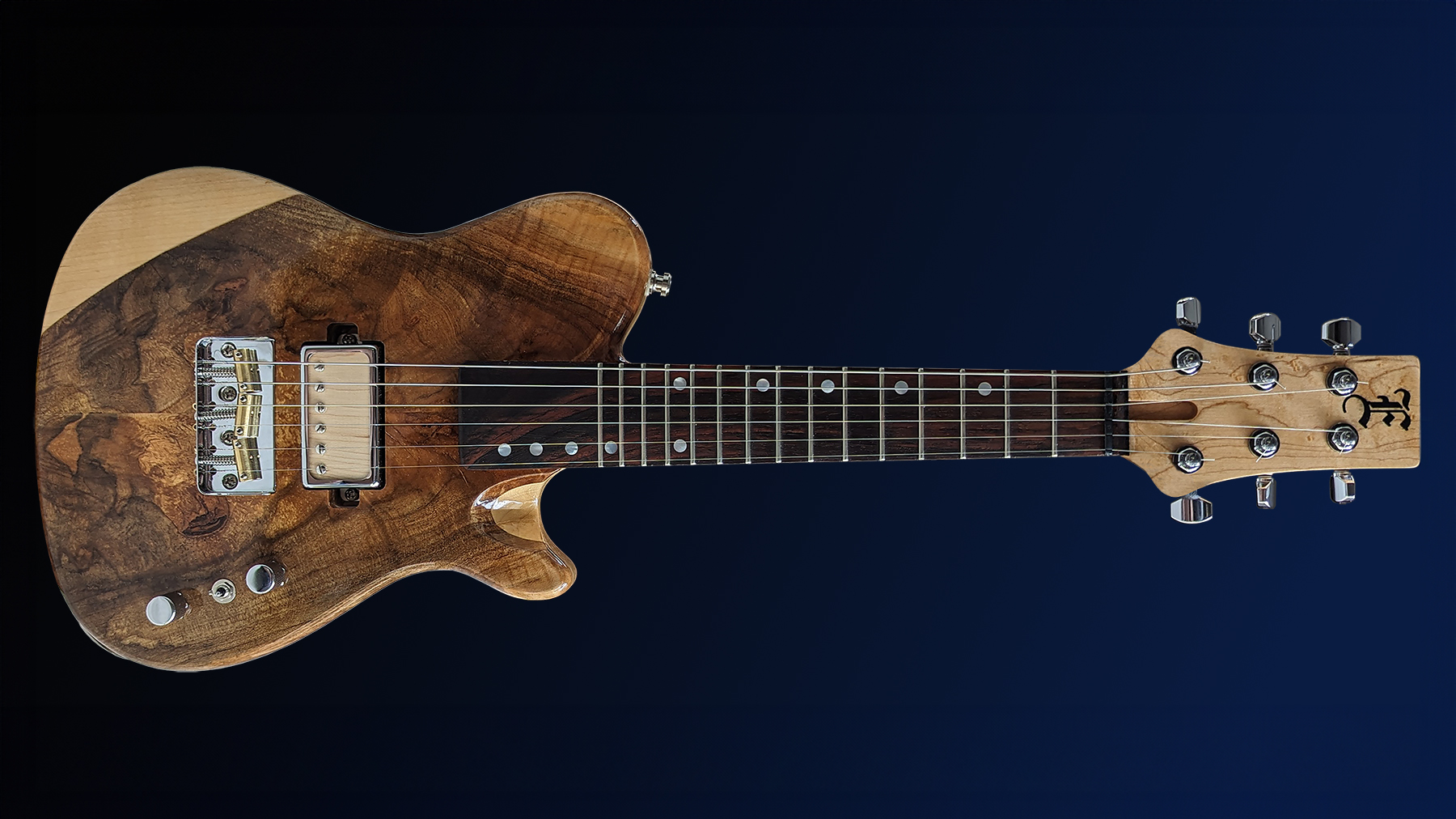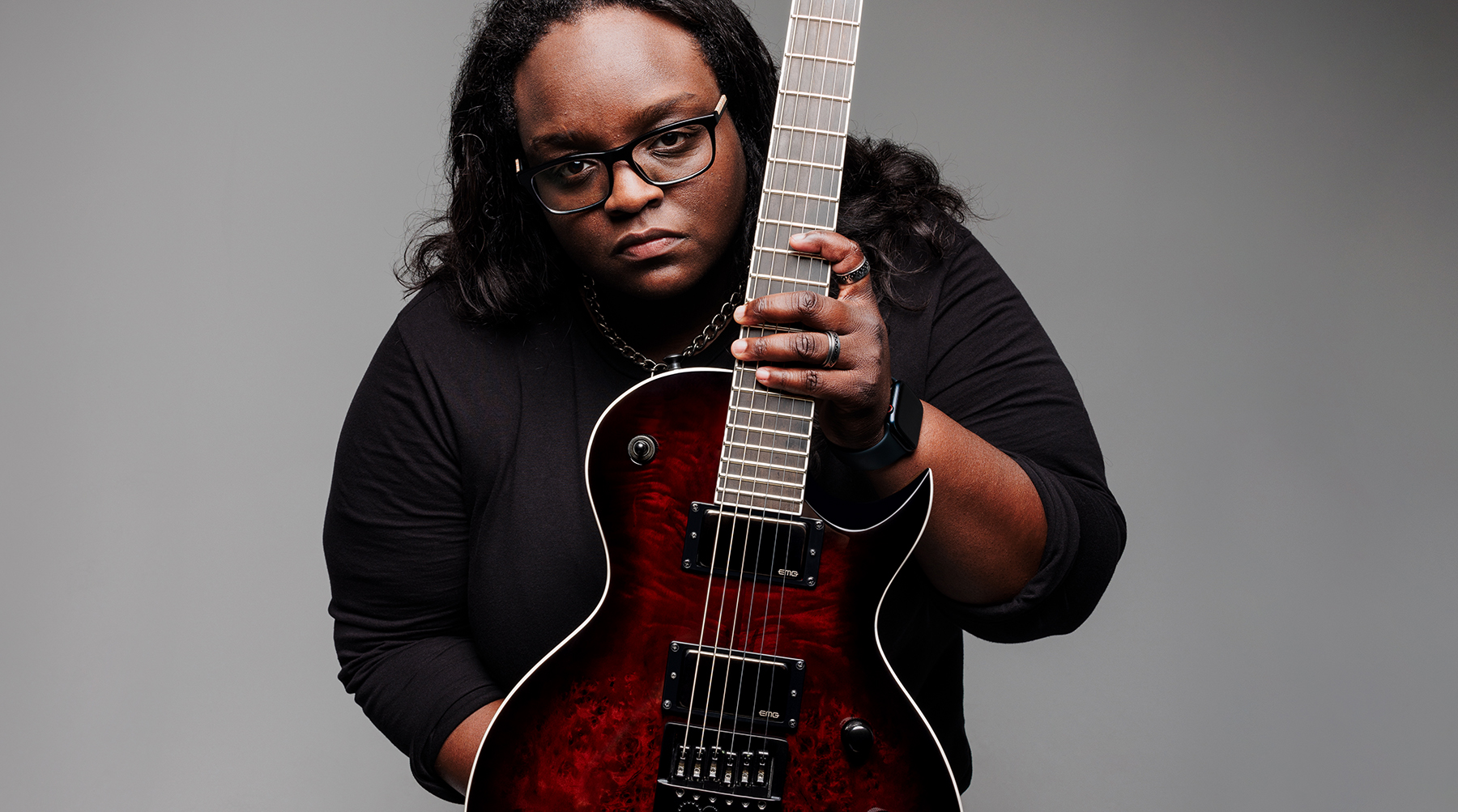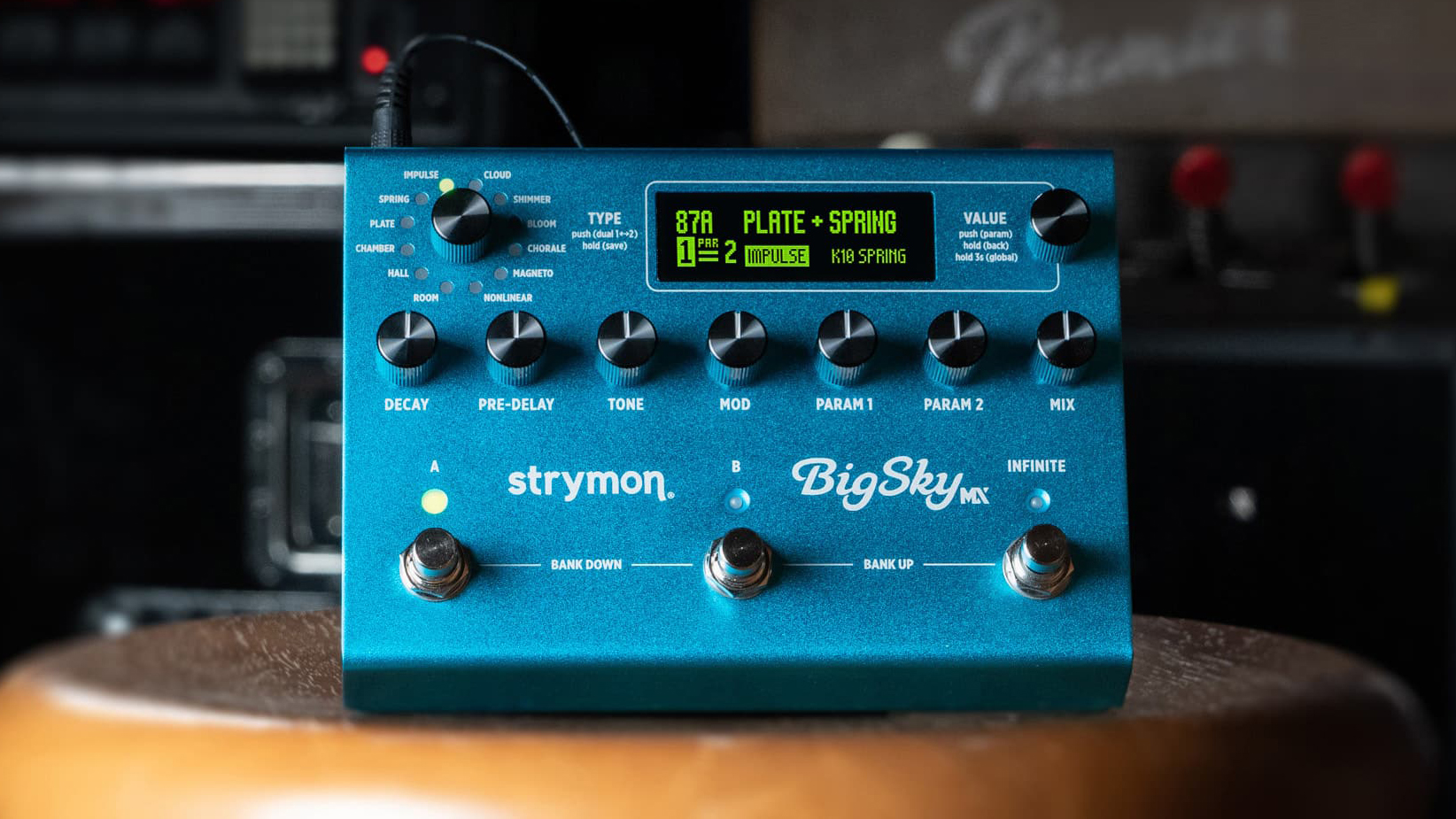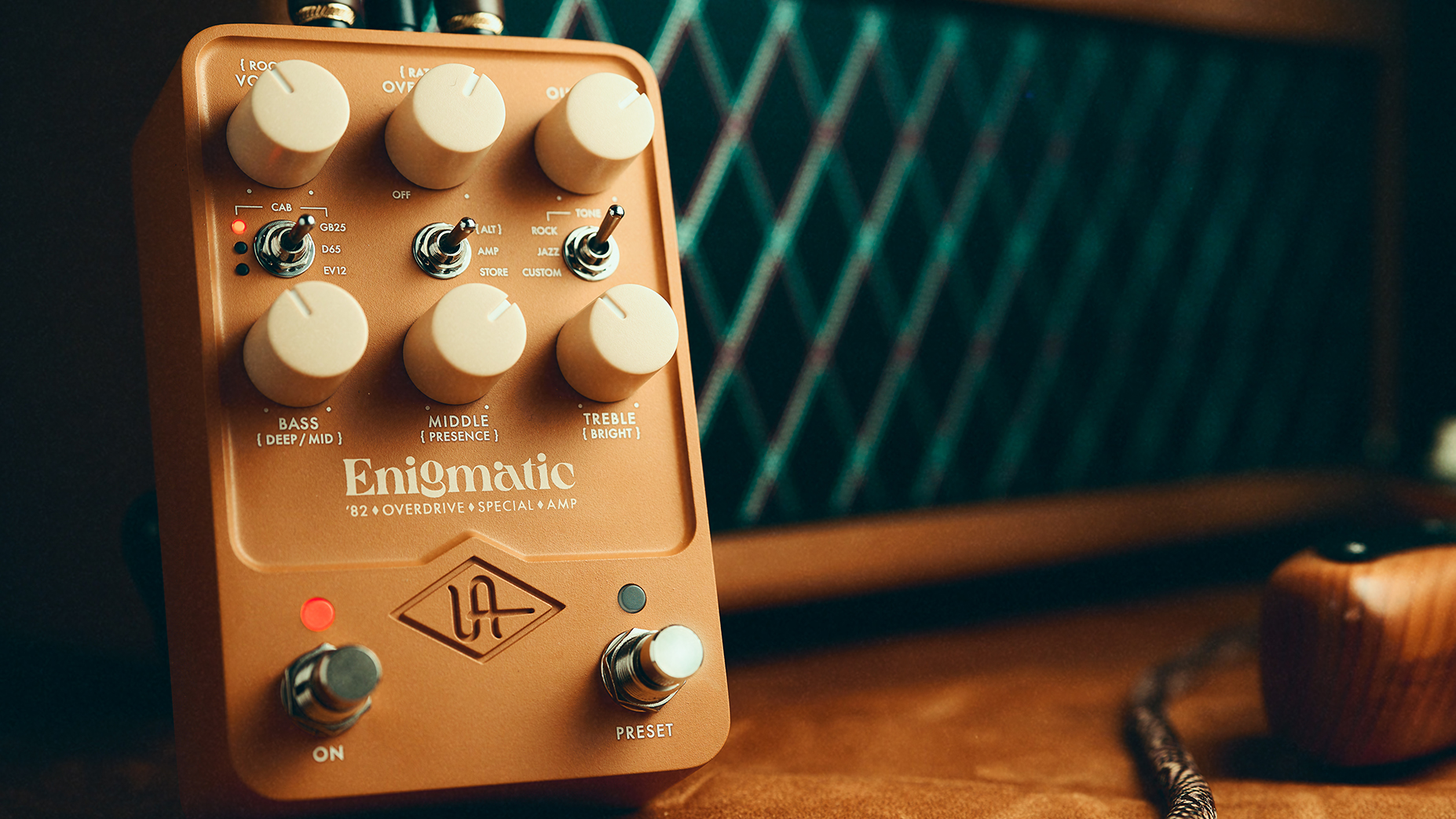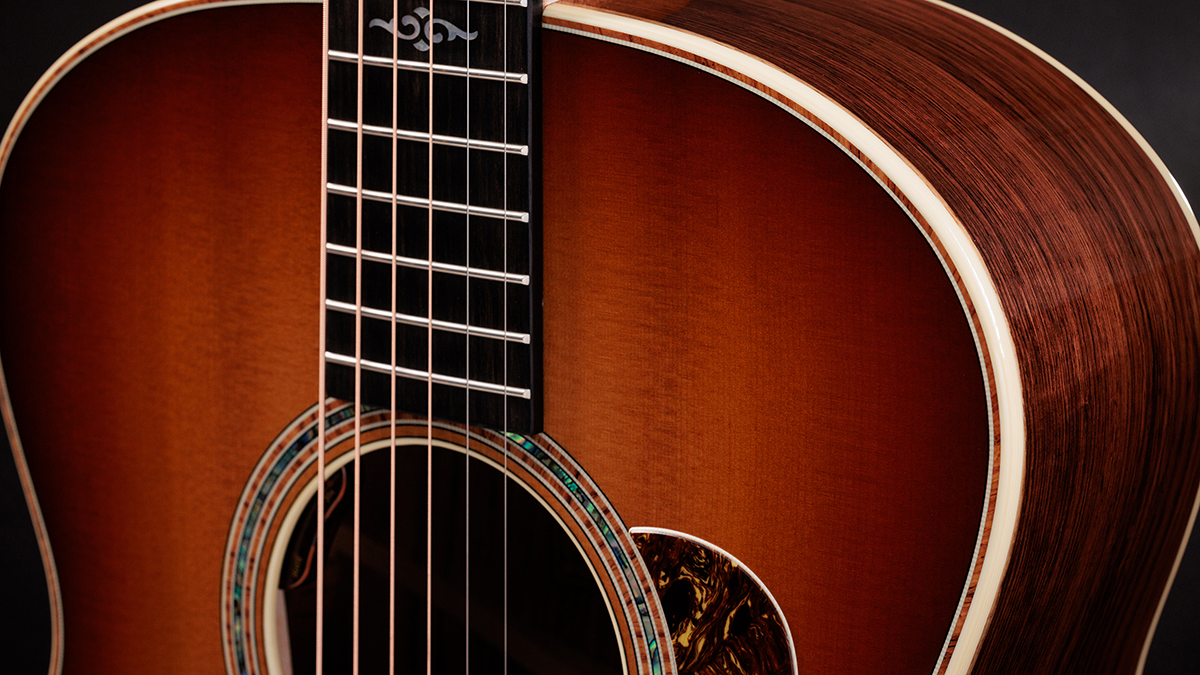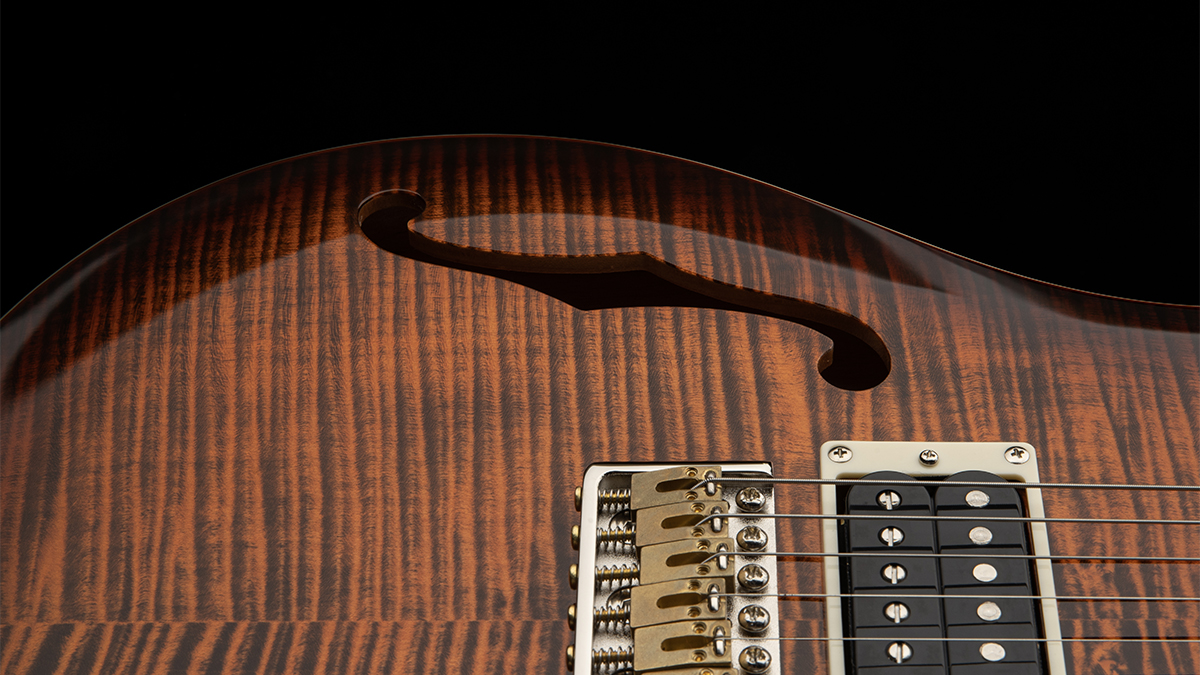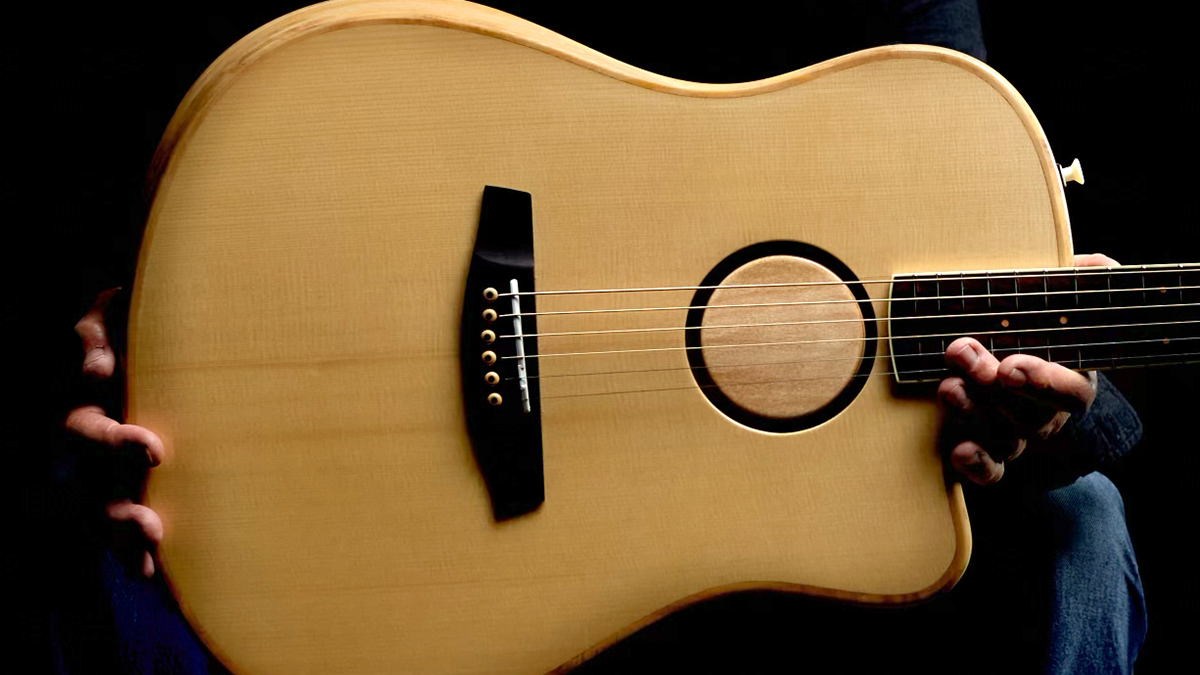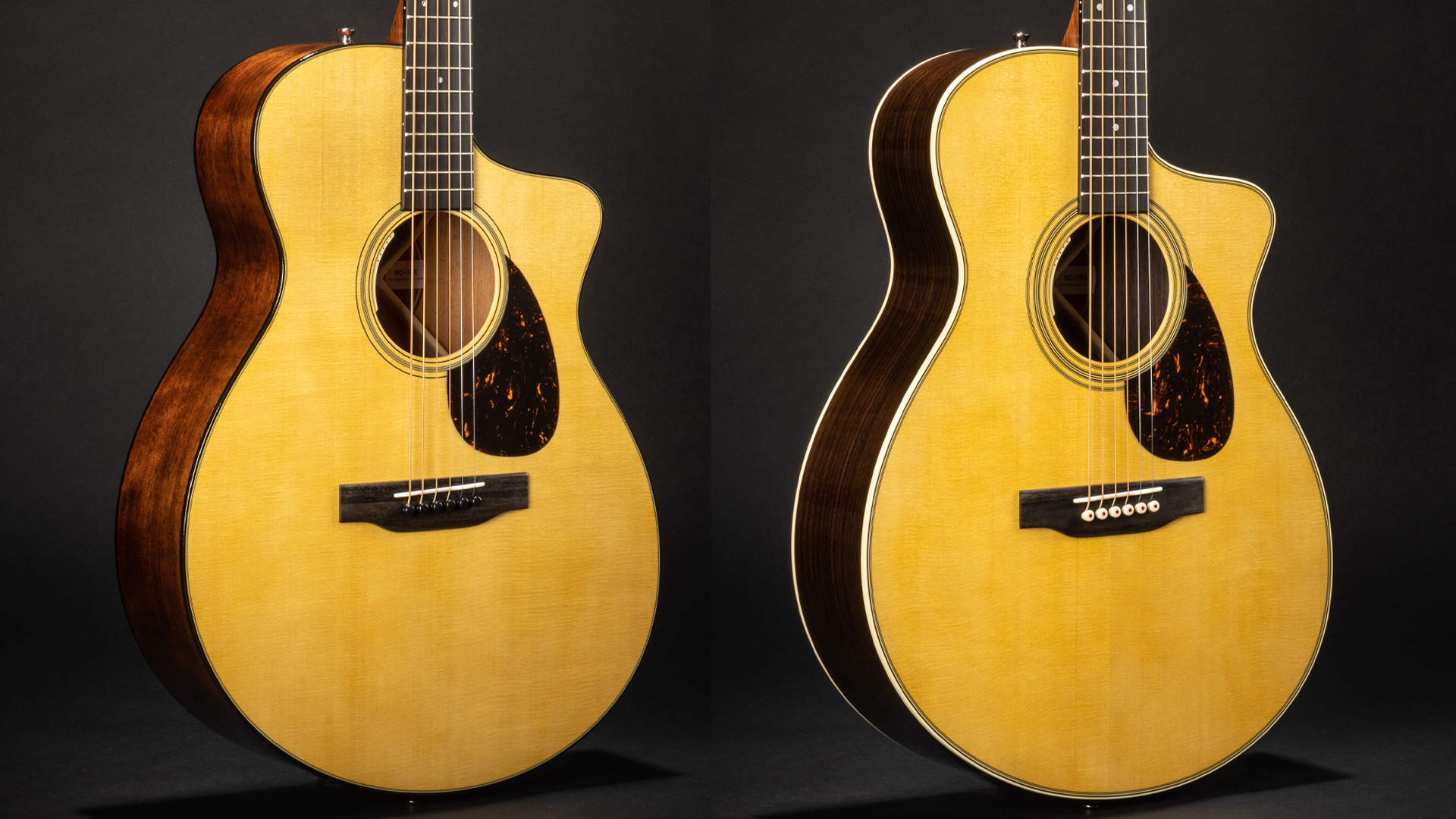GuitarPlayer Verdict
Reverend has delivered big-league performance at semi-pro prices for many years, but the Chris Freeman Signature model offers up some hefty surprises nonetheless
Pros
- +
Can tackle pretty much any genre you throw at it
- +
Creative and unusual control section
- +
Feels great in the hand
Cons
- -
Reverse headstock might take some getting used to
You can trust Guitar Player.
For the scrappy American-alternative upstart it once was, Reverend Guitars has grown to be an impressive performer in a market crowded with bigger and longer-established names, and part of that success is found in its compiling of an extensive artist roster. The Chris Freeman Signature is the latest model to join that team, and as with so many before, it brings a host of features designed to appeal to players well beyond the fan base of the Hot Mulligan guitarist.
Reverend Guitars was launched in 1997 when Joe Naylor combined his studies of industrial design, lutherie school, and vintage guitar repair experience into a viable guitar-making business in a garage at the back of a Detroit bicycle shop.
His early designs were notable for their clear nod to early Danelectro guitars, using semihollow bodies made with wood-based phenolic-resin tops and backs, which were attached to wide mahogany center blocks. Naylor also put a lot more thought and attention into the design and build process, and was granted a patent for his design of the Reverend High Resonance Body.
Over the coming years, the business evolved: Offshore manufacturing was introduced in 2006, and in 2010 Ken and Penny Haas purchased the company and took over management, while Naylor stayed on for R&D. This was followed by a move to Toledo, Ohio. Over the ensuing years, the core Reverend designs evolved away from the Danelectro-inspired template and into something closer to the guitar we have here this issue.
The Chris Freeman Signature springs from the blueprint for the Double Agent OG. It has an offset-waist body shape with a rounded upper horn and a sharply truncated lower cutaway, and is finished in your choice of Turquoise Sparkle or Powder Yellow.
The body is made from solid korina, a tonewood somewhat akin to mahogany, but with its own characteristic upper-midrange bite. To this, Freeman has spec’d a bolt-on neck and separate fingerboard – both made from roasted maple – an upside-down headstock with Reverend Pin-Lock tuners, an inspiringly mixed pair of pickups, and a few other surprises, all brought together in a collaboration that he clearly enjoyed.
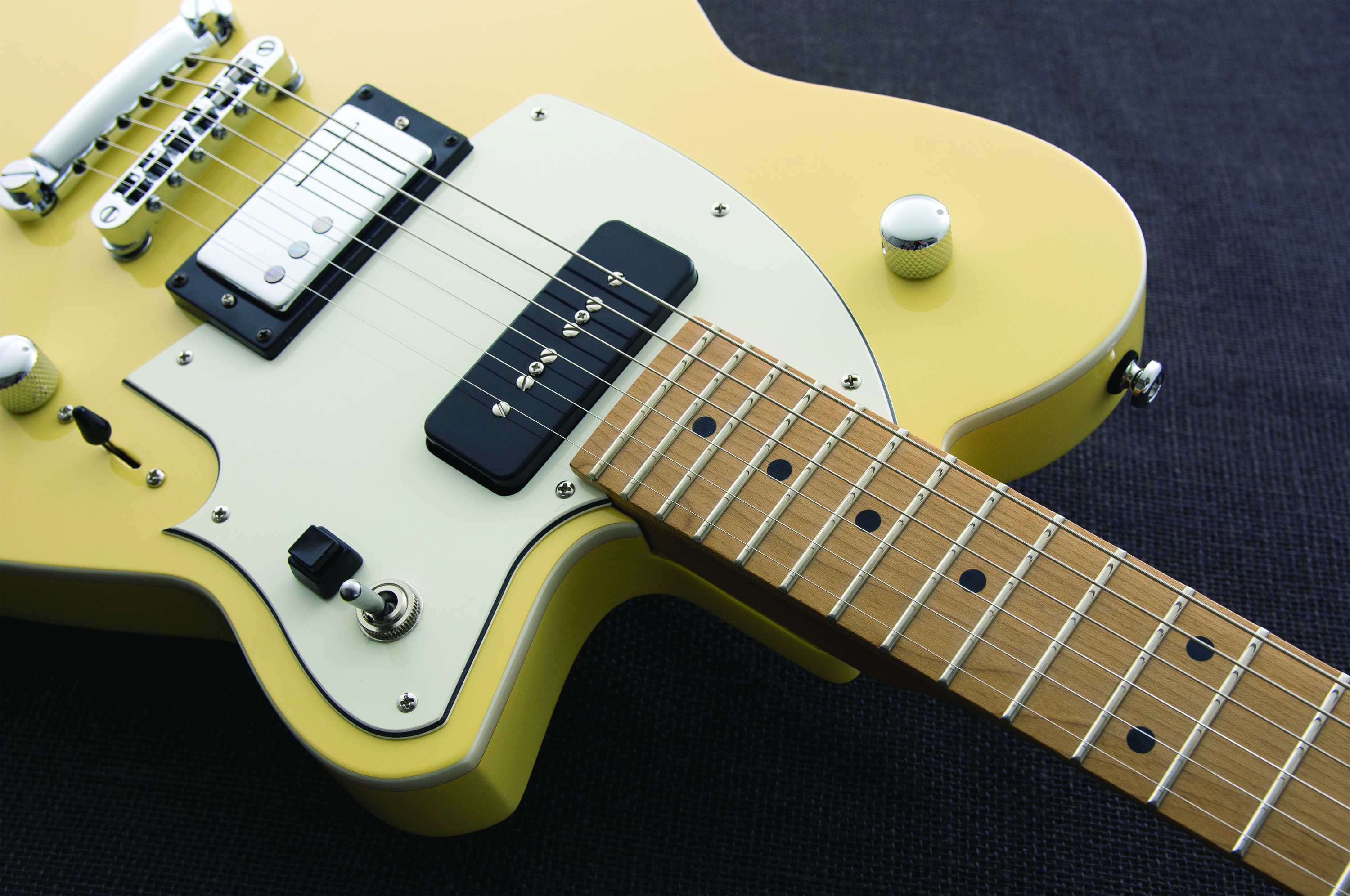
“The process for putting the guitar together with Reverend was really easygoing for both parties,” the guitarist tells Guitar Player. “We’ve been like family for years, and I text Ken [Haas] pretty often. Before they asked if I’d be interested in doing a signature model, I’d already been playing the pickup configuration we used for it for a couple of years after swapping out the humbucker in the Double Agent OG for the Nuevo 90. I did that because the first Reverend I played was the Buckshot and I was missing the single-coil in the bridge.
“The finishes were exciting to see in the mock-ups they sent over, but seeing the colors in person blew me away. I like the Turquoise Sparkle more than I thought I could. I was surprised by how big the sparkle is!”
In addition to the bridge-position Nuevo 90 – a pickup that blends Reverend’s original Railhammer design with elements of a humbucker-sized P90 in a noise-canceling single-coil design – the neck position carries the maker’s 9A5, a more traditional vintage-voiced P90 soapbar pickup. It’s a pairing that Freeman evolved toward through years of hard touring, rather than merely by chance.
“I was being steered toward this setup for a couple years,” he explains. “I loved the single-coil in the bridge position of my first Reverend, the Buckshot, but I use the neck pickup or both pickups often for Hot Mulligan’s cleaner emo sounds and wanted to spring for a P90 in the neck.
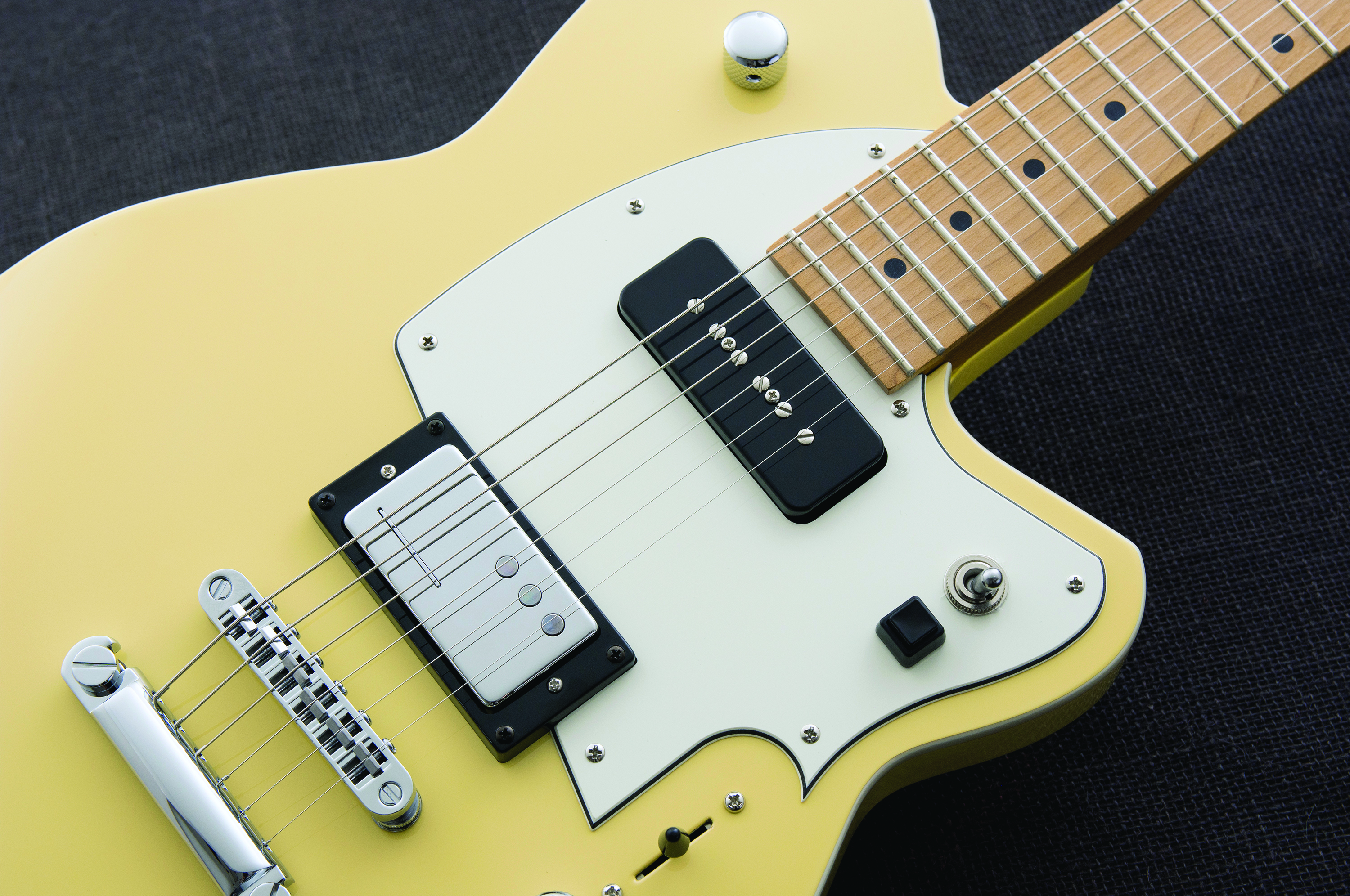
“I played the Double Agent for a while, but I missed how the single-coil sounded versus the humbucker. But sometimes we play on really noisy stages, so I decided to go with the Nuevo 90 in the bridge to bring back some of that single-coil sound and reduce hum. And ever since then, it’s been great. I don’t know if any of the other models have that pickup configuration.”
What pulls them together is a creative and unusual control section that marries traditional master volume and tone controls and a three-way switch on the lower-treble bout with Reverend’s Bass Contour control on the upper-bass bout, as well as two types of kill switches – a momentary push button and a latching toggle – on the cutaway horn. The latter are useful accessories in Freeman’s distinctive playing, but even the way in which it was all mounted resulted from the artist’s input.
“The rear-mounted controls are really the only thing I think some players might not think about at first glance,” Freeman says.
“I’m a road dog, playing over 100 shows a year. I kept sweating into the controls during our longer sets or during outdoor summer festivals. Sometimes by the end of the set my guitars just sounded underwater and would stop working until they dried out the next day. They never felt the same; all the sweat was getting into that front control plate. As a result, we put the plate on the back so it can keep up with me on the road and not lose sound.”
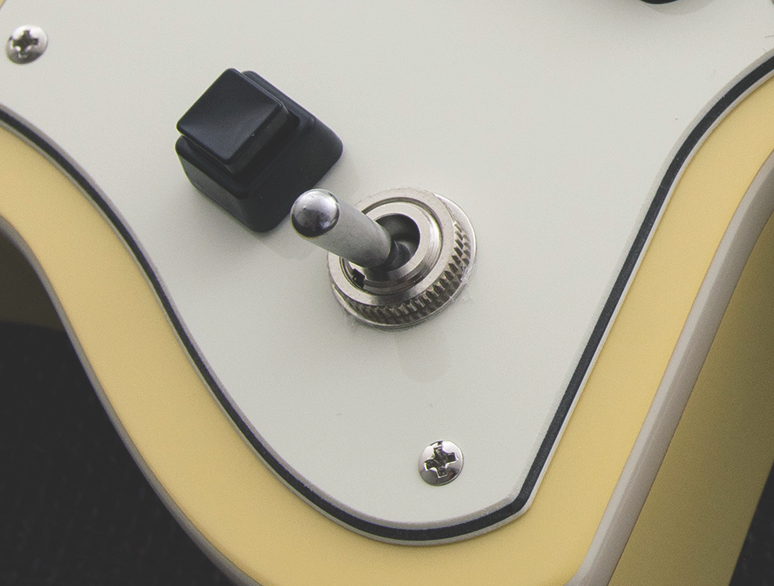
The Chris Freeman Signature feels great in the hand, with a familiarly comfortable Reverend neck carve and smoothly dressed frets, but that interesting twist in the control layout allows you to easily access fun alternative sounds. Testing it through a Fender Deluxe Reverb combo, a 65amps London head and 2x12 cab, and a Fractal FM9 modeler into headphones, I quickly found it an inspiring instrument that sent me in some unexpected directions.
Reverend’s take on the P90 in the neck position offers few surprises, but it delivers a very capable performance for clean tones that are rich and warm, with just a little grit to thicken the brew, as well as the throaty growl in overdriven settings that has won so many soapbar fans over the years.
This was my first encounter with the Nuevo 90, however, and I dug it immediately. Blending slug-pole clarity and blade-pole beef between the plain and wound strings, respectively, it somehow still sounds like all six strings are firing through the same pickup, and delivers a great marriage of clarity and depth in the process.
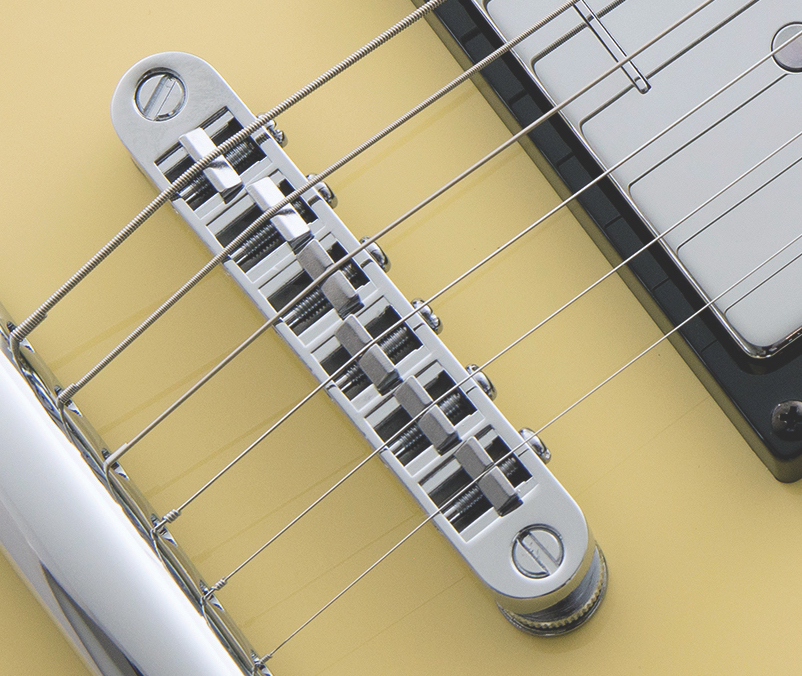
Take note that this position is not intended only for emo fans, I found it was fantastic for meaty twang and girthy chime alike, and when applying some gain, Reverend’s clever Bass Contour circuit dialed it between Tele and PAF-like tones, all noise-canceling for worry-free lead work.
These two outwardly different pickups also played great together in the middle position, issuing a rounded, slightly scooped voice with a lot of sparkle that worked well for a range of rhythm needs. Ultimately, the guitar felt entirely at home in everything from indie to alt-rock to shoegaze, but it also applied itself effortlessly to alt-country, blues, punk, and some heavier rock riffing.
I’ve appreciated Reverend’s ability to deliver big-league performance at semi-pro prices for many years – heck, even a couple of decades now – but the Chris Freeman Signature model offers up some hefty surprises nonetheless, and earns an Editors’ Pick Award in the process.
Reverend Chris Freeman Signature – Specifications
CONTACT Reverend Guitars
PRICE $1,439 street
NUT Boneite (synthetic bone), 1 11/16” wide
NECK Roasted maple
FRETBOARD Roasted maple, 25.5” scale,
12” radius
FRETS 22 medium-jumbo
TUNERS Reverend Pin-Lock
BODY Solid korina
BRIDGE Tune-o-matic with stoptail
PICKUPS Reverend Nuevo 90 bridge, 9A5 neck
CONTROLS Master volume and tone, Bass Contour, three-way switch, momentary and latching kill switches
FACTORY STRINGS D’Addario .010–.046
WEIGHT 7.8 lbs
BUILT IN Korea
Dave Hunter is a writer and consulting editor for Guitar Player magazine. His prolific output as author includes Fender 75 Years, The Guitar Amp Handbook, The British Amp Invasion, Ultimate Star Guitars, Guitar Effects Pedals, The Guitar Pickup Handbook, The Fender Telecaster and several other titles. Hunter is a former editor of The Guitar Magazine (UK), and a contributor to Vintage Guitar, Premier Guitar, The Connoisseur and other publications. A contributing essayist to the United States Library of Congress National Recording Preservation Board’s Permanent Archive, he lives in Kittery, ME, with his wife and their two children and fronts the bands A Different Engine and The Stereo Field.
“It’s a special kind of moment when you hit that first note of a solo and you literally get nothing.” He’s played with David Bowie and the Cure, but Reeves Gabrels says things don’t always go right, even for the pros
“We’re Liverpool boys, and they say Liverpool is the capital of Ireland.” Paul McCartney explains how the Beatles introduced harmonized guitar leads to rock and roll with one remarkable song
“We’d heard Jimi Hendrix, we'd heard the Who, but now we finally got to see these guys. And watching Jimi Hendrix burn his guitar….” Grace Slick on Hendrix at Monterey, Jefferson Airplane and the Spanish origins of “White Rabbit”
